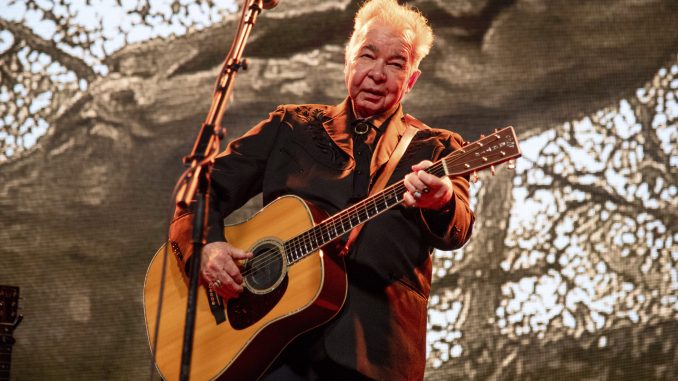
NASHVILLE – John Prine, the ingenious singer-songwriter who explored the heartbreaks, indignities and absurdities of everyday life in “Angel from Montgomery,” “Sam Stone,” “Hello in There” and scores of other indelible tunes, died Tuesday at the age of 73.
His family announced his death from complications from the coronavirus; he died at Vanderbilt University Medical Center in Nashville, Tennessee.
His wife Fiona said last month that she had tested positive for COVID-19 and she has since recovered, but her husband was hospitalized on March 26 with coronavirus symptoms. He was put on a ventilator and remained in the intensive care unit for several days.
Winner of a lifetime achievement Grammy earlier this year, Prine was a virtuoso of the soul, if not the body. He sang his conversational lyrics in a voice roughened by a hard-luck life, particularly after throat cancer left him with a disfigured jaw.
He joked that he fumbled so often on the guitar, taught to him as a teenager by his older brother, that people thought he was inventing a new style. But his open-heartedness, eye for detail and sharp and surreal humor brought him the highest admiration from critics, from such peers as Bob Dylan and Kris Kristofferson, and from such younger stars as Jason Isbell and Kacey Musgraves, who even named a song after him.
In 2017, Rolling Stone proclaimed him “The Mark Twain of American songwriting.”
Prine began playing as a young Army veteran who invented songs to fight boredom while delivering the U.S. mail in Maywood, Illinois. He and his friend, folk singer Steve Goodman, were still polishing their skills at the Old Town School of Folk Music when Kristofferson, a rising star at the time, heard them sing one night in Chicago, and invited them to share his stage in New York City. The late film critic Roger Ebert, then with the Chicago Sun-Times, also saw one of his shows and declared him an “extraordinary new composer.”
Suddenly noticed by America’s most popular folk, rock and country singers, Prine signed with Atlantic Records and released his first album in 1971.
“I was really into writing about characters, givin’ ’em names,” Prine said, reminiscing about his long career in a January 2016 public television interview that was posted on his website.
“You just sit and look around you. You don’t have to make up stuff. If you just try to take down the bare description of what’s going on, and not try to over-describe something, then it leaves space for the reader or the listener to fill in their experience with it, and they become part of it.”
He was among the many promoted as a “New Dylan” and among the few to survive it and find his own way. Few songwriters could equal his wordplay, his empathy or his imagination.
“He writes beautiful songs,” Dylan once told MTV producer Bill Flanagan. “I remember when Kris Kristofferson first brought him on the scene. All that stuff about Sam Stone the soldier-junkie-daddy, and Donald and Lydia, where people make love from ten miles away — nobody but Prine could write like that.”
Prine was never a major commercial success, but performed for more than four decades, often selling his records at club appearances where he mentored rising country and bluegrass musicians.
“I felt like I was going door to door meeting the people and cleaning their carpets and selling them a record,” he joked in a 1995 Associated Press interview.
Many others adopted his songs. Bonnie Raitt made a signature tune out of “Angel from Montgomery,” about the stifled dreams of a lonely housewife, and performed it at the 2020 Grammys ceremony. Bette Midler recorded “Hello in There,” Prine’s poignant take on old age. Prine wrote “Unwed Fathers” for Tammy Wynette, and “Love Is on a Roll” for Don Williams.
Others who covered Prine’s music included Joan Baez, Johnny Cash, John Denver, the Everly Brothers, Carly Simon, George Strait, Miranda Lambert, Norah Jones and Old Crow Medicine Show.
Prine’s off-hand charisma made him a natural for movies. He appeared in the John Mellencamp film “Falling From Grace,” and in Billy Bob Thornton’s “Daddy and Them.” His other Grammy Awards include Best Contemporary Folk Recording for his 1991 album “The Missing Years,” with guest vocalists including Raitt, Tom Petty, Bruce Springsteen and Phil Everly. He won Best Traditional Folk Album in 2004 for “Beautiful Dreamer.”
His survived by his wife, Fiona, two sons Jack and Tommy, his stepson Jody and three grandchildren.
